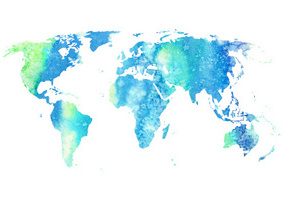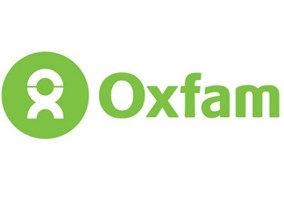Comic Relief has been a “huge success story” but the way it represents Africa has become “dated” and “possibly quite harmful”, its interim chief executive said this week.
Ruth Davison, whose permanent role at the charity is as executive director of impact and investment, was speaking at Civil Society Media’s NGO Insight conference on Tuesday. She emphasised that she “loves” Comic Relief and that it has been a huge success story overall, raising £1bn over 31 years, but said that this has “almost counted against” the charity in recent times.
“We're so brilliant at what we do and have been for so long that we hadn’t noticed that it had tipped from really timely and relevant, into slightly irrelevant and dated, into actually possibly quite harmful.”
She identified three elements to the “perfect storm that Comic Relief has been swirling in for a little while now”.
Firstly, she said the concept of a telethon that screens for seven hours on one night a year has become dated in an era where many people stream their television shows on demand. “We still are raising tens of millions of pounds, but television audiences are leaving.”
Secondly, she said the role of celebrities in charities and in society has changed, and that the charity has been “trying to admit it and trying to learn from those failures” following criticism of its 2017 film with Ed Sheeran.
She highlighted UK-focused films such as Zoe Ball’s on young men with mental health problems and Lenny Henry’s on food poverty as examples of how Comic Relief can still work successfully with celebrities.
And thirdly she identified the broader issue of how Africa is portrayed to the British public. “We in the UK don’t need to be told that Africa exists, we don’t need to be told that people are living in poverty, we don’t need to be told that we can do something to help,” she said.
“That narrative in the days of Live Aid was breakthrough and really revolutionary, but it became irrelevant quite some time ago actually and has now moved into harmful.
“It’s about representation, and I think that’s for all of the big fundraising INGOs in the room to think about.”
Income falls ‘inevitable’
Davison said it is “absolutely inevitable” that income from the Red Nose Day telethon will continue to fall, but said she believes that Comic Relief will be able to use its brand in other ways throughout the year, particularly through its appeal films.
“That’s fundamentally how we communicate,” she said. “If we can get that right – mass fundraising but with dignity and respect, authenticity, with real people telling their own stories – then we can change the model for any INGO.”
Responding to a question from the audience, she added that she believes using harsh images in fundraising material is losing its impact as well as being counterproductive. “To be honest, we and other INGOs have fallen into the trap of ramping up that need, showing stuff that shouldn’t be shown and stripping people of their dignity, stripping people of their privacy, because it elicits a strong emotional reaction from the viewer or the reader and they will give.
“I don’t think it’s the case anymore that we [donors] are responding to that kind of that imagery in the same way, so it becomes less a moral argument and more pragmatic.”
'That's not the Uganda we know'
Also speaking on the panel was Joel Kibazo, who is a founding partner of the Africa-focused public affairs consultancy JK Associates and a trustee of several charities. He expressed concern about the way that Comic Relief and other international development charities portray Africa in the UK, saying that his daughter had said to him “Dad, that’s not the Uganda we know”.
He said: “Much as Comic Relief is terribly contrite, my issue is very simple: why not just get real? The Africa you're dealing with does not exist anymore.
“I was in Nairobi one or two weeks ago at a tech summit, and what was being discussed was how the new innovations of tech are helping the crop development, are helping with water delivery. Why are we not at least engaging on those key points where societies are changing and they’re being changed from within? They’re not some saviour who's come on a plane and said I've come to save you.
“Twenty to 30 years ago we might have had a generation where you didn’t have that. That’s not the case anymore, you have an educated population in Africa.”
He added that he wasn’t denying that there is still poverty in Africa, but said that INGOs need to at least engage with the work that is going on from within. “The people you are dealing with, they should really be partners, not people you are saving, because that is no longer the case.
“Somebody said to me in Accra two weeks ago, ‘when are these people going to stop saving us? We don’t want to be saved, we want to be able to be engaged’. My fear is that some of the work will stop being actually received in the manner that it is.”
Stacey Dooley criticism ‘overplayed’
Kibazo also said he felt that criticism of Comic Relief over its film with Stacey Dooley earlier this year had been “overplayed”.
“I actually think [Labour MP] David Lammy did not know what he was talking about. I happened to be in Uganda a few days after that, and they said ‘what’s going on, why are they talking about this?’
“To them a young woman saw a baby and picked it up. The fact that it was a black baby, whatever, and actually it wasn’t a baby that was terribly impoverished, so that was the point.
“So we've got to stop having these constructs by external people who don’t really know.”
|
Related items












